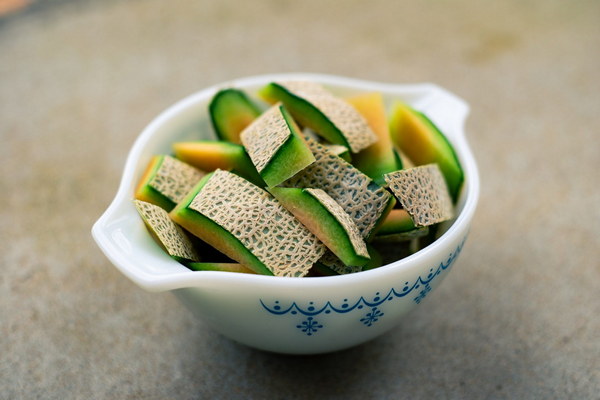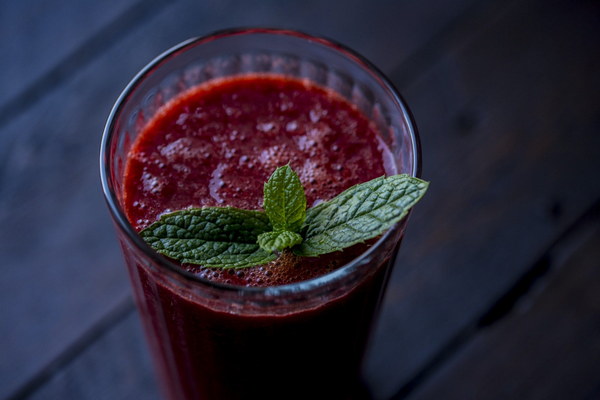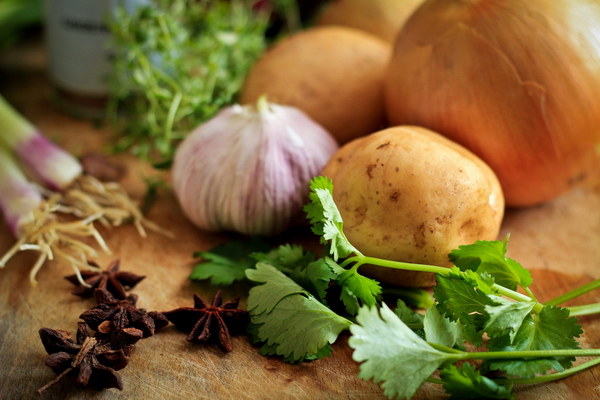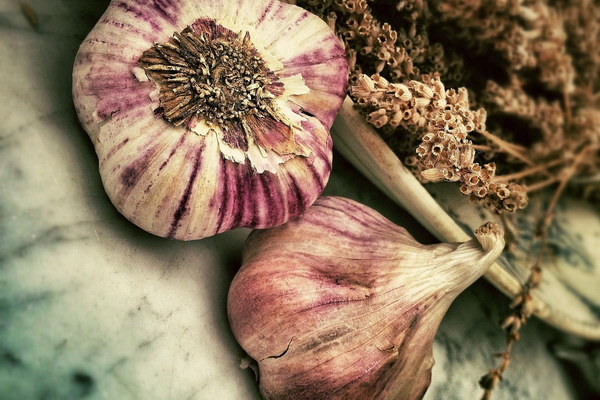Spicy Food Enthusiasts How to Nourish Your Body and Maintain Balance After Indulging in Spices
Introduction:
In a world where spicy cuisine has taken center stage, many of us find ourselves indulging in the fiery flavors of chili peppers and other spicy ingredients on a regular basis. While the heat can be exhilarating, it's important to understand how to properly care for your body after a spicy feast. This article delves into the art of nourishing your body and maintaining balance after indulging in the spicy delights that we all love.
1. Hydration is Key:
One of the first steps to take after consuming spicy food is to ensure you're well-hydrated. Spicy foods can cause excess sweating and a sense of dehydration, so it's crucial to drink plenty of water. Aim for at least eight glasses a day, and consider adding a slice of lemon or cucumber to your water to enhance its refreshing qualities and help alleviate the burning sensation in your throat.
2. Consume Dairy Products:

For those who can tolerate it, dairy products can be a godsend after eating spicy food. The fats and proteins in milk, cheese, and yogurt can help coat your mouth and throat, providing a soothing effect. Greek yogurt, in particular, is rich in probiotics, which can support gut health and help maintain a balanced microbiome.
3. Eat Fatty Foods:
Similar to dairy, fatty foods can help alleviate the burning sensation caused by spicy food. Avocado, nuts, and seeds are all great choices, as they provide healthy fats that can coat your mouth and throat. These foods also offer a variety of nutrients, including omega-3 fatty acids, which have anti-inflammatory properties.
4. Incorporate Cooling Foods:
Foods with cooling properties can help soothe the inflammation caused by capsaicin, the compound responsible for the heat in chili peppers. Incorporate ingredients like coconut milk, cucumber, watermelon, and celery into your meals. These foods are hydrating and can provide a refreshing contrast to the heat.
5. Spicy Food Supplements:
If you consume spicy food frequently, consider incorporating certain supplements into your diet to support your body's natural response. Omega-3 supplements can help reduce inflammation, while probiotics can support gut health. Additionally, turmeric, a spice known for its anti-inflammatory properties, can be added to your meals to help combat the heat.
6. Rest and Recovery:
After indulging in spicy food, it's important to give your body time to recover. Resting and avoiding overexertion can help your body process the spices more effectively. If you feel a strong urge to eat something spicy, try to resist the temptation and give your body a break.
7. Mindful Eating:
Mindfulness is a powerful tool when it comes to enjoying spicy food. Take your time to savor each bite, and listen to your body's signals. If you start to feel discomfort, it's a sign to take a break and give your body a moment to recover.
Conclusion:
While spicy food can be a delightful and flavorful part of our diet, it's essential to understand how to care for your body after indulging in its fiery flavors. By staying hydrated, incorporating cooling foods and supplements, and practicing mindful eating, you can maintain a balanced and healthy lifestyle even as a spicy food enthusiast. Remember, moderation is key, and treating your body well is the best way to enjoy all the flavors life has to offer.









